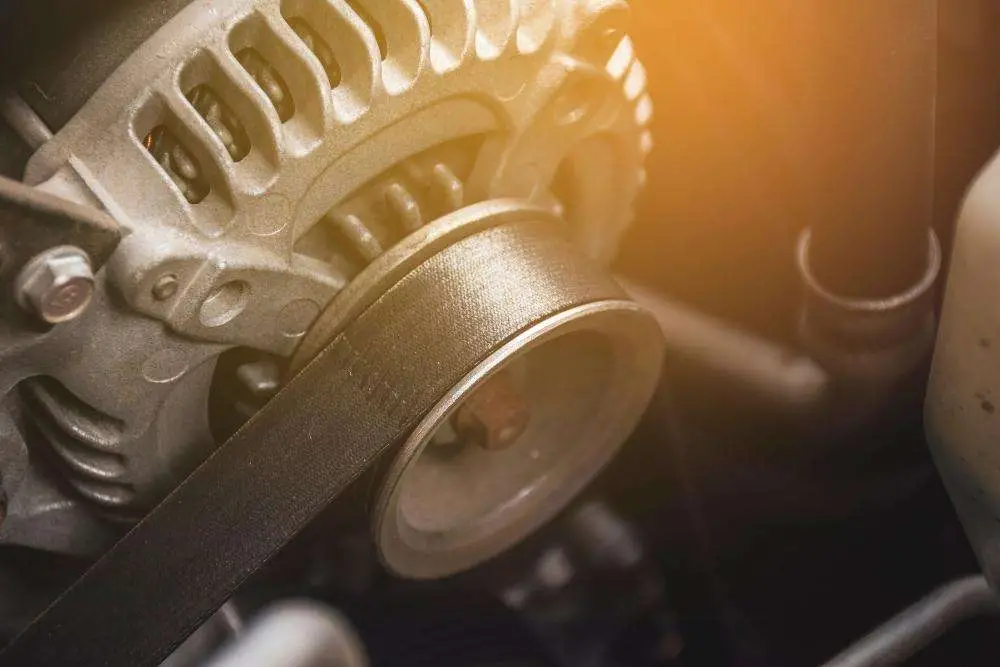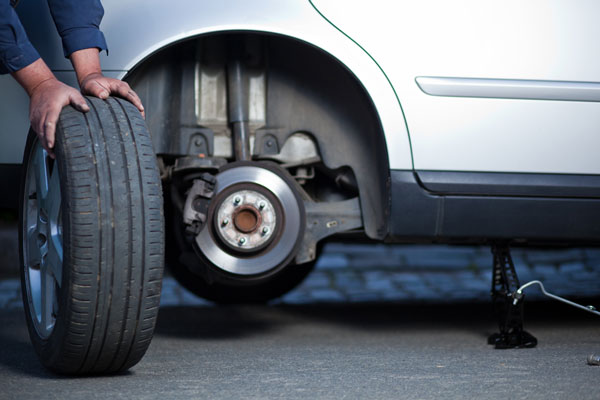Hearing your car squealing just as you press the gas pedal can be nerve-wracking. A high-pitched noise like that cannot be good news.
So why exactly are you hearing high pitched noise when pressing the gas?
Many times the high-pitched noise during acceleration is caused by transmission fluid issues. Worn-out serpentine belts or any of the belt-driven components can be the source of the noise. Or you can have damaged wheel bearings that are creating such noise when the gas is pressed.
This is just a tad bit about the whole issue. Want to know more about diagnosing the problems and their solutions?
Well, I got you covered. Just go through this article where we have just what you are looking for!
Running a Diagnosis
Hearing a high-pitched squealing noise just when you press the acceleration can be worrisome. And unfortunately, there may be quite a few different reasons behind the problem.
As it happens, these can be the very same reason for noises during deceleration. To find the problem, you can perform a visual inspection. The best place to do the inspection is in your driveway.
Having someone to help will be great too. Here’s how you can perform the diagnosis:
Step 1: Check the Exterior
Firstly look around the tires of the car to see if there is something entangled. After that, try looking under the car. Something might be stuck under and cause noise while driving.
Step 2: Check the Engine
While the engine is off and cooled, try checking under the hood. Check if anything seems peculiar. See whether anything that does not belong in there or not.
Only if the engine is cooled properly, can you try to feel if anything is wrong. Check the belt, hoses, fans, and other competent for any problem. Specially check the belt for any wear or tear.

Step 3: Check Via Driving
While the hood is open, have someone press the acceleration for a few seconds. Meanwhile, try checking if anything seems out of the ordinary.
Lastly, close the hood and have someone drive the car around slowly. See if the noise changes during cornering or braking.
What’s Causing the High-Pitched Noise When Accelerating?
From diagnosing the car you might get some hints on what the problem is. But you need to know the causes behind the noise to decide your next step.
But worry not! We are going to discuss the most common causes behind the problem. Searching them, you should notice what’s causing your car to squeal.
Reason 1: Transmission Issue
Transmission plays a vital part in running the car. But unfortunately, transmissions are quite prone to problems. An issue with the transmission can make your car squeal while accelerating.
You might want to know: What are the reasons for car transmission noise?
Having old or even being low on transmission fluid might be what is causing the sound. Problems with the fluid pump may also be the reason behind the noise.
The noise might also be generated due to a failing torque converter. This results in either more fluid going into the transmission or less fluid going in.
Solution: Replace Faulty Transmission
Issues with transmission are quite serious. You will need to visit a mechanic to get it fixed. Though you can change the fluid by yourself, it is quite a messy job.
Getting the right transmission fluid for your transmission is always important. You really can’t go wrong with the transmission fluid.
No products found.
These transmission fluids will help to gift your transmission an extended lifetime. With less friction and anti-wear technology, you won’t have to worry about a damaged transmission.
Changing a faulty torque converter requires the removal of the transmission system. The cost of such a service may set you back around $1000.
No products found.
Reason 2: Bearing or Belt-Driven Components Issue
Not everyone knows this but engines have many belt-driven parts. And each of these parts has a drive pulley and a few sets of bearings.
The belt-driven parts also include the engine’s water pump, power steering, a/c compressor, and alternator. The system might also include tensioner pulleys and idler pulleys. Most new vehicles have one serpentine belt to drive all the associated components.
No products found.
But what causes the whining noise while driving?
If the bearing of any of the components mentioned above fails, a whining noise can be heard. The sound can be most commonly associated with the alternator’s internal bearing failing.
If the bearings fail, a high-pitched squealing noise while driving can be heard.
Issues with power steering can cause the whining noise as well. The noise might be especially prominent if the power steering pump is requiring fluid.
Solution: Change Faulty Components and Belts
Faulty belt-driven components need to be diagnosed and replaced as fast as possible. If not fixed quickly, it might lead to the bearing locking up and the belt being shredded.
This will render the car undrivable and raise the cost of repair greatly.
Visit a mechanic to have any bearing or belt-driven component issues fixed. Trying to fix it on your own may lead to even more problems.
Replacing a power steering pump can cost you anywhere from $400 to $800. Repairing the pump should cost around $250 to $300. It is expensive but gets fixed quickly. Because power steering fluids can damage the brakes over time.
Reason 3: Serpentine Belt Issue
Now we already mentioned the components the belt-driven system includes. And we also mentioned the importance of those components being in good shape. But the belt itself can only drive the components if it is in good shape.
With age, the serpentine belt can become dry and crack in places. Thus the belt loses its grip on the pulley if the components it drives. This leads to slippage and noise while accelerating.
The noise is created because of the friction of the slipping serpentine belt. The intensity of the noise increases with acceleration.
Roughed-up serpentine belts might be the answer to why does my car make a high pitched noise when i start it.
Solution: Repair and Replace Serpentine Belt
Repairing or replacing the belt will require you to take the car to a mechanic. If you think the problem is with the belt itself, then we recommend getting it checked quickly.
The price of changing a serpentine belt will be around $200. The belt usually costs around $50. And the labor cost should be around $150.
Reason 4: Wheel Bearing Issue
Wheel bearings ensure that the cars’ wheels spin properly while driving. And these wheel bearings tend to wear down over time.

Older cars have independent wheel bearings. These can be removed and greased whenever necessary. Newer cars have bearings with unitized hubs that require replacement in case they begin to wear.
Worn-down bearings tend to make a whistling sound in the car at high speed. The sound takes an especially high pitch during acceleration.
Issues with wheel bearings can be pinpointed during corners. If the sound changes pitch or disappear during cornering, then the wheel bearings are causing the sound.
Solution: Replace Failed Bearing
If such is the case, wheel bearings need to be replaced promptly. If the bearings fail completely, it might create a dangerous situation.
You’ll need to take your car to a mechanic to get the wheel bearings replaced. The national average cost of fixing wheel bearings is $350 per wheel. It may vary depending on where you are.
No products found.
Frequently Asked Questions
Can I Replace the Transmission Fluid Myself?
Yes, you can change the transmission fluid by yourself. But it is a messy job. First, you will have to drain the old transmission fluid using a filler tube. But you can only remove one-third to one-half of the fluid at a time. So you will have to repeat the process a few times over a few weeks.
Can You Drive a Car with a Bad Wheel Bearing?
Even if you can, we don’t recommend doing so. Running a car with a damaged wheel bearing is very dangerous. If a wheel bearing fails completely, the wheel will stop spinning during driving. Damaged wheel bearings put a lot of stress on the hub and the transmission.
What Can Happen if You Drive with a Bad Serpentine Belt?
While driving with a bad serpentine belt, the belt itself might break completely. That will render the car undrivable and you will have to tow your car. And if you try to run the engine without the serpentine belt, you will just overheat the engine.
Conclusion
And with that, we know what’s causing the high pitched noise when pressing the gas. The issue could be with the transmission, serpentine belt or belt-driven components, or wheel bearings.
To fix the issue we recommend going to a mechanic. The cost of the mechanic will vary depending on the problem and your region.
That’s it for today!
- Is The Jeep Cherokee Frame or Unibody (Briefly Answered) - November 10, 2022
- Are Titan Wheel Spacers Good (The 360 Guidelines) - November 9, 2022
- FCW off Jeep (Is It Important for Your Car) - November 9, 2022

